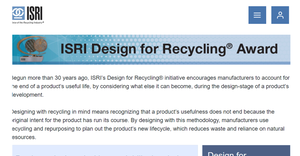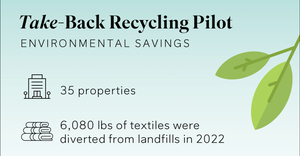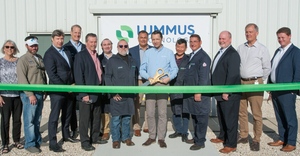Localism is a growing trend, with consumers demanding (and willing to pay more for) locally-grown food and locally-made products, and thinking about the supply chains and human labor involved in those projects, and how the production of food or goods affects the place and its people.
April 20, 2023
Merav Koren, CMO, TIPA Corp
Localism is a growing trend, with consumers demanding (and willing to pay more for) locally-grown food and locally-made products, and thinking about the supply chains and human labor involved in those projects, and how the production of food or goods affects the place and its people.
It is time for a similar focus in our approach to waste. Like many other industries, waste is increasingly globalized. Trucks are hauling waste thousands of miles to landfills, creating pollution and carbon emissions. This is because landfills are large, taking in trash from many surrounding states. The landfill sector produces 14.5 percent of all U.S. methane emissions, mainly from the rotting of organic waste like fruit and vegetable scraps.
In addition, the United States and other countries ship waste, including plastic, overseas. This simply moves the problem of plastic, which never truly goes away, but breaks down into microplastics that threaten the environment and human health, to another location, often a poorer country with even fewer resources. This is yet another sign of the growing carbon footprint of the global waste industry, which is increasingly hurting millions of people and parts of the environment thousands of miles away from where the waste originated.
Keeping more of our waste local can reduce our carbon footprint and even benefit local communities. One key way to do this is to embrace composting on a local or regional level.
If food and other organic waste, like yard clippings and paper, is composted rather than put in landfills, this reduces methane emissions-–as these items do not emit this planet-warming gas in compost conditions. Nearly 30 percent of all waste that is thrown away today can be composted. Diverting this waste to compost would go a long way in relieving overflowing landfills and reducing greenhouse gas emissions.
Eventually, composted waste turns into nutrient-rich compost material that farmers can use on their fields, offering a much-needed boost to agriculture and the planet as a whole. Just a 5 percent increase in organic material, like compost, added to soil can quadruple a field’s ability to hold water. Compost increases crop yields, and overall soil health, making it a critical factor in the agriculture sector’s ability to produce enough food for a growing global population. In addition, fields treated with compost are able to absorb more carbon from the atmosphere, potentially mitigating climate change.
It makes sense for composting to happen locally, in people’s backyards, community centers or industrial-grade facilities. This means that waste does not have to travel as far, and that the end-product of compost is available in more locations, cutting down on farmers’ needs to transport it long distances.
If compost becomes part of local waste management, we will also no doubt see more innovation in packaging and other consumer products that can be easily composted. Currently, packaging and containers make up nearly 30 percent of all municipal waste produced in the United States. If more of this packaging, especially flexible plastic that cannot be recycled, is made from compostable materials, it would help solve one of our most pressing environmental challenges.
According to the most recent data from the U.S. Environmental Protection Agency, only about 8% of waste is composted annually. This compost is also not generated in enough places, causing farmers and gardeners to drive long distances to get compost. With only five U.S. states mandating composting, local communities, small businesses and volunteers are too often left on their own to step up and organize composting programs.
Government support is slowly growing; more municipal waste systems have added composting services, and the American Rescue Plan Act includes funding for composting and other programs that help communities benefit from their trash. But more public support, funding– and most importantly, a change of mindset–is needed to keep more of our waste local. By thinking locally about our waste, we can improve our own communities and health, and that of the entire planet.
Editor's Note: Do you have commentary to share? Submit your opinion piece to Stefanie Valentic, editorial director at [email protected].
You May Also Like


